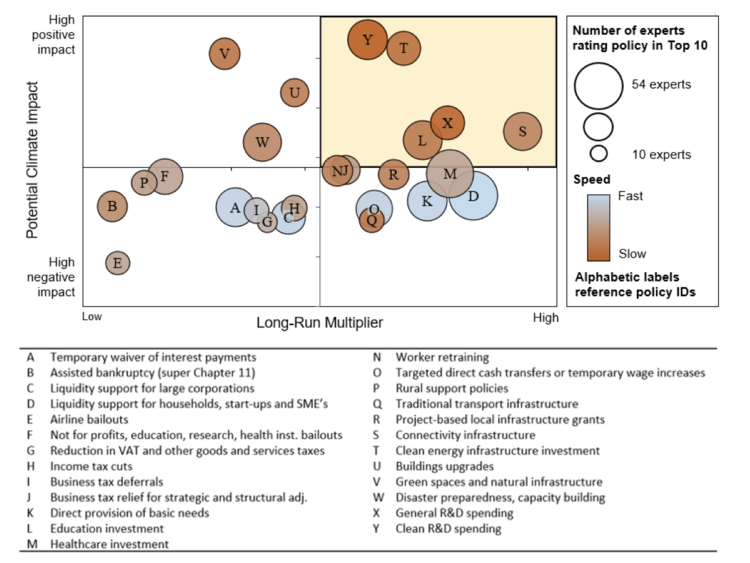Will COVID-19 fiscal recovery packages accelerate or retard progress on climate change?
Cameron Hepburn, Brian O’Callaghan, Nicholas Stern, Joseph Stiglitz, Dimitri Zenghelis
May 2020 in Oxford Review of Economic Policy, Volume 36, Number S1, 2020, pp. S359–S381
Abstract: The COVID-19 crisis is likely to have dramatic consequences for progress on climate change. Imminent fiscal recovery packages could entrench or partly displace the current fossil-fuel- intensive economic system. Here, we survey 231 central bank officials, finance ministry officials, and other economic experts from G20 countries on the relative performance of 25 major fiscal recovery archetypes across four dimensions: speed of implementation, economic multiplier, climate impact po- tential, and overall desirability. We identify five policies with high potential on both economic multi- plier and climate impact metrics: clean physical infrastructure, building efficiency retrofits, investment in education and training, natural capital investment, and clean R&D. In lower- and middle-income countries (LMICs) rural support spending is of particular value while clean R&D is less important. These recommendations are contextualized through analysis of the short-run impacts of COVID-19 on greenhouse gas curtailment and plausible medium-run shifts in the habits and behaviours of hu- mans and institutions.
Suggested Citation: Cameron Hepburn, Brian O’Callaghan, Nicholas Stern, Joseph Stiglitz, Dimitri Zenghelis, Will COVID-19 fiscal recovery packages accelerate or retard progress on climate change?, Oxford Review of Economic Policy, Volume 36, Issue Supplement 1, 2020, Pages S359–S381

